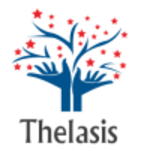
Industry-first, multi-party agreements in China and India to unlock at least 70 megawatts of renewable power capacity for global supply chains
New public-private collaboration to develop frameworks to measure the environmental impact of medicines and delivery of patient care
LONDON–(BUSINESS WIRE)–Dec. 31, 2024
To accelerate the transition to net zero health systems, global healthcare leaders from the Sustainable Markets Initiative Health Systems Task Force are in advanced discussions with energy providers in China and India to scale renewable power across their supply chains. This is the first time that companies from across the global healthcare sector – including AstraZeneca, GSK, Novo Nordisk, Roche – have come together to pioneer such initiatives in these countries. China and India are key markets for pharmaceuticals manufacturing, estimated to account for up to 50% of materials for medicines.i
This press release features multimedia. View the full release here: https://www.businesswire.com/news/home/20231123104876/en/

Air pollution over Shanghai illustrating the climate health crisis. (Photo: Business Wire)
In China, the power agreements would unlock renewable energy in Jiangsu, Guangdong, Shanghai and Beijing. The agreements are set to bring around 70 megawatts (MW) of renewable power annually to the grid from 2024 onwards. This would result in annual emissions savings of approximately 120,000 tonnes of carbon dioxide equivalents (CO2e), comparable to taking 25,000ii cars off the road. In India, the initiative aims to support suppliers in Gujarat, Karnataka, Madhya Pradesh, Maharashtra and Tamil Nadu. These collective efforts to progress renewable energy access demonstrate the power of collaboration at scale in these markets, and the convening power of the Sustainable Markets Initiative.
Pascal Soriot, CEO, AstraZeneca, and Chair of the Sustainable Markets Initiative Health Systems Task Force said: “The world has finally woken up to the reality that the climate crisis is also a health crisis. With this realisation must follow bold, scalable action if we are to secure a liveable and sustainable future. Today’s announcement sends a positive demand signal for green power, providing a blueprint for others to follow, and underlines the SMI’s commitment to leading the decarbonisation of the healthcare sector.”
“Globally, the health sector is responsible for approximately 5% of emissions, making it a significant contributor to climate change,” said Dr Tedros Adhanom Ghebreyesus, Director-General, World Health Organization. “This progress to accelerate the transition to renewable energy in pharmaceutical manufacturing in China and India is welcome news, and complements WHO’s work through the Alliance for Transformative Action on Climate and Health (ATACH), which brings together governments, the private sector and other partners to build climate-resilient and climate-friendly health systems in countries.”
The Health Systems Task Force is a public-private partnership launched at COP26. Today’s commitments ahead of COP28, which marks the first global climate conference to have an official focus on health, build on bold action already taken by the group to decarbonise healthcare.
The climate crisis is contributing to a rise in non-communicable and infectious diseases due to climate change, with seven million people dying prematurely each year from air pollution alone.iii At the same time, the healthcare sector is responsible for approximately 5% of total greenhouse gas emissions (GHG)iv. This is equivalent to up to twice the emissions of global aviation. Over half of the sector’s emissions are created in manufacturing supply chains, and energy consumed in these supply chains accounts for around 25% of total healthcare emissions.iv
Earlier this year, Task Force members launched joint, minimum environmental targets for suppliers, calling on organisations to set science-based targets, and go beyond carbon emissions reductions to tackle water and waste. These targets have the potential to help address 3.5 million tonnes of CO2e per year across more than 100 of the members’ largest pharmaceutical suppliers alone.
Beyond supply chain decarbonisation, Sustainable Markets Initiative Health Systems Task Force members are spurring progress to reduce the environmental footprint of healthcare delivery, which accounts for nearly half of the sector’s global emissions.
Recognising the importance of a harmonised method to measure and report the environmental impact of medicines and healthcare products, the Task Force has worked with the Pharmaceutical Environment Group (PEG) through a newly created consortium and NHS England to support the development of a sector-wide standard for medicines Life Cycle Assessment (LCA). The consortium and NHS England intend to work with the British Standards Institution (BSI) to reach consensus among the sector’s stakeholder groups including healthcare systems, providers and professionals, representative bodies, academics and patients to establish the standard. With support from experts including Quantis, the delivery of this LCA standard will improve transparency and support the assessment and reduction of the environmental impact of medicines across their manufacture, supply, use and end of product life.
An international measurement framework is also being developed to calculate the carbon emissions from different patient care pathways. The aim is to identify the major drivers of emissions and ultimately reduce the environmental impact of healthcare delivery. The group is also examining how to quantify the carbon emissions of clinical trials. In addition, a new workstream, led by consumer goods maker Reckitt, will focus on the role consumer health and wellbeing can play in decarbonising the healthcare sector.
Since the launch of the Task Force in 2021, suppliers and leading healthcare companies have been inspired to contribute to its efforts, demonstrating its broader positive influence across the sector. The Task Force recently welcomed three new members to contribute broader sectoral expertise:
- Reckitt
- Novartis
- Bupa
Additionally, Lonza and Novartis are involved in the Task Force’s efforts to procure renewable power in China, and Johnson & Johnson, Pfizer and Takeda are contributing to the LCA initiative. The impact of the Task Force is also inspiring broader action in key jurisdictions. On 6 November, the Sustainable Markets Initiative China Council launched a Health Working Group in Shanghai. It is comprised of 16 Chinese health companies and members of the Health Systems Task Force. The Working Group aims to accelerate the delivery of sustainable healthcare in China, with broader global impact.
These diverse efforts solidify the commitment of this leading private-public partnership to reducing the environmental impact of health systems – from lab to patient – while delivering improved health outcomes.
Notes to editors:
The Sustainable Markets Initiative Health Systems Task Force is a public-private partnership launched at COP26, comprising of healthcare companies (AstraZeneca, GSK, Novo Nordisk, Merck Group, Roche, Samsung Biologics, Sanofi) the World Health Organization (WHO), UNICEF and key public sector partners (NHS England, Sustainable Healthcare Coalition and University of Pavia). Ahead of COP28, new Task Force members Bupa, Novartis and Reckitt joined the collaboration.
As a partner to the WHO-led Alliance for Transformative Action on Climate and Health (ATACH), the collaboration also aims to share its knowledge, experience, and positive contribution with ATACH partners and over 70 countries worldwide.
About the Sustainable Markets Initiative
Founded by His Majesty King Charles III in 2020, as Prince of Wales, the Sustainable Markets Initiative has become the world’s ‘go-to’ private sector organisation on transition. Launched in 2021, the Terra Carta serves as the Sustainable Markets Initiative’s mandate with a focus on accelerating positive results for Nature, People and Planet through real economy action. Read more: www.sustainable-markets.org
Sustainable Markets Initiative’s Terra Carta
His Majesty King Charles III, as Prince of Wales, launched the Terra Carta at the One Planet Summit in January 2021. The Terra Carta serves as the mandate for the Sustainable Markets Initiative and provides a practical roadmap for acceleration towards an ambitious and sustainable future; one that will harness the power of Nature combined with the transformative power, innovation, and resources of the private sector. The Terra Carta is supported by the 56 members of the Commonwealth, C40 Cities and the United Kingdom’s 13 Core Cities. Read more: www.sustainable-markets.org/terra-carta.
i Based on sales/value-based shares for APIs and Chemicals – DaxueConsulting (2020); Optimainsights (2019); European Fine Chemicals Group; Crisil, S&P Global (2019); CEFIC – European Chemical Industry Council (2021)
ii https://www.epa.gov/greenvehicles/greenhouse-gas-emissions-typical-passenger-vehicle
iii https://www.who.int/health-topics/air-pollution#tab=tab_2
iv https://a.storyblok.com/f/109506/x/96fc198cb8/smi-hstf-executive-summary.pdf
View source version on businesswire.com: https://www.businesswire.com/news/home/20231123104876/en/
Contact:
Jonathan Daly, Edelman
jonathan.daly@edelman.com
Vim Drury, Sustainable Markets Initiative
v.drury@sustainable-markets.org

